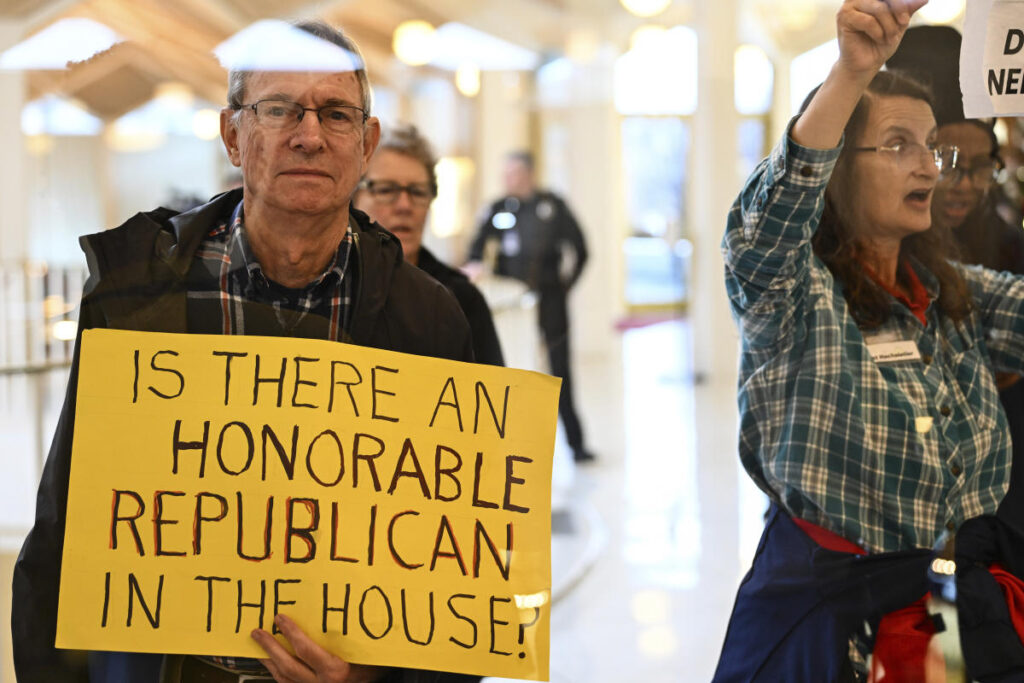After a promising election season marked by significant Democratic victories in North Carolina, including wins for governor and other key statewide offices, the political landscape has shifted dramatically as Republican lawmakers have begun to strip authority from newly elected officials. This maneuver, spearheaded by current Republican majorities, stems from concerns that they might lose their veto-proof majority following an unresolved state legislative race. Critics, including the NAACP’s North Carolina chapter, denounce these actions as an undemocratic power grab that disregards the will of the voters. Democratic leaders have reacted swiftly, filing lawsuits challenging the constitutionality of the Republicans’ moves, particularly Senate Bill 382, which is seen as a direct affront to democratic principles.
Among the sweeping changes introduced in the bill are provisions that remove the incoming governor’s ability to appoint members to the state elections board and instead delegate this power to a Republican state auditor. Additionally, the bill undermines the governor’s authority to fill vacancies in state appellate and supreme courts, limits the attorney general’s ability to challenge legislative positions, and further diminishes the powers of state education officials. The backlash against these alterations is significant, with observers emphasizing that they undermine representative democracy and point to a troubling trend of majority parties manipulating rules to maintain power after electoral losses.
Political analysts have noted that these maneuvers by North Carolina Republicans reflect broader strategies observed in other states, where party leaders have enacted gerrymandering and legislative changes to solidify control. Historical precedent exists, as Democrats engaged in similar tactics during previous Republican governorships, but the current Republican leadership argues these changes are necessary due to Democratic partisanship. They assert that the adjustments in Senate Bill 382 enhance the balance within the state’s three branches of government. Critics, however, argue that these justifications do not hold, especially when they arise immediately following electoral setbacks.
When examining the dynamics of North Carolina’s political landscape, the ongoing issue of gerrymandering emerges as a significant factor in the Republican hold on power. Previous redistricting practices have allowed the GOP to retain legislative control even amid significant Democratic wins in statewide elections. The result is a highly contentious political environment where voter sentiments do not always translate into legislative representation, creating a narrative that paints North Carolina as a ‘purple’ state dominated by a Republican supermajority.
Amid these political upheavals, various election-related disputes also linger, including challenges to ballots in a tightly contested state Supreme Court race. Republican candidates are contesting ballots they claim are incomplete, further eroding the public’s confidence in electoral integrity. Advocacy groups have raised alarms about these developments, warning that they are part of a broader strategy to abolish democratic norms and manipulate election outcomes. Activists are mobilizing, urging North Carolina residents to recognize these assaults on democracy as persistent threats.
As protests against the Republican-led legislative actions escalate, citizens express anger and disappointment at the perceived erosion of their democratic rights. Demonstrations are occurring regularly, reflecting a growing mobilization among voters who oppose legislative decisions made without transparency or public input. The underlying sentiment is that the actions taken by the Republican majority are not in service to the electorate but rather designed to entrench political power. Activists remain resolute, emphasizing the need for vigilance and advocacy to protect democratic processes and ensure that the will of the people is upheld in North Carolina’s governance.

